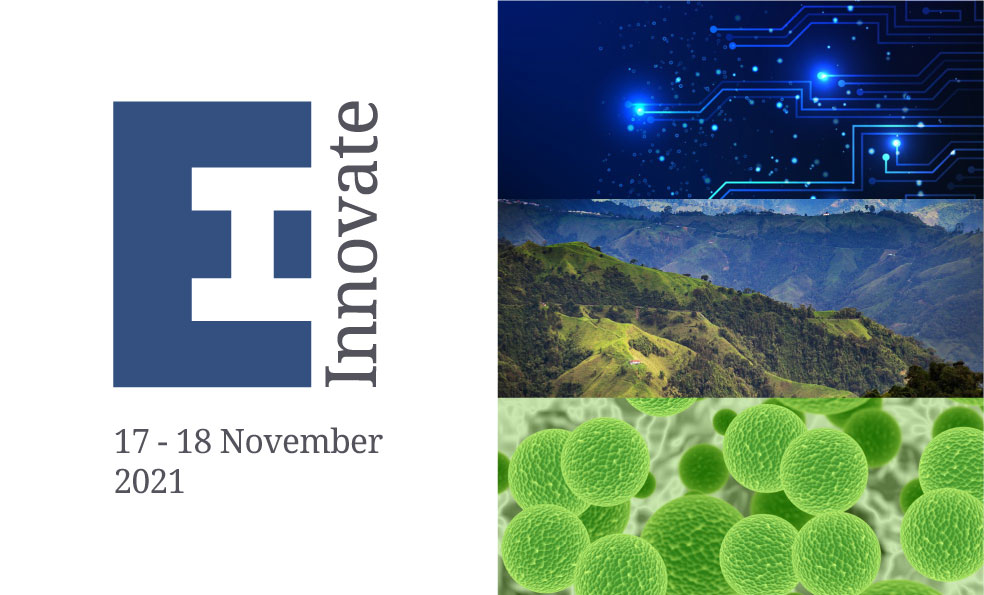Session 1: Natural Products & Biomanufacturing
Living organisms are an important source of compounds used in medicine and industry, with many drugs being derived from bioactive natural products found in plants and microbes. At Earlham, we identify the genetic basis of chemical diversity and apply synthetic biology approaches to enable the biomanufacturing of rare and valuable molecules. This session will provide examples of gene discovery from plants, photosynthetic biomanufacturing of therapeutics and sex pheromones for controlling insect pests of agriculture, and how bioengineered microbes are being used to reduce the environmental impact of the textile industry.
We will also have an interactive discussion on how to discover and access novel natural products and the approaches for scaling up their production, considering partnering and collaborations that can enable this.
Q&A Panellists:
- Yvonne Armitage, CPI (Chair)
- Nicola Patron, Earlham Institute
- Diego Orzáez, SUSPHIRE
- Neil Williamson, Colorifix
- Anne Osbourn, John Innes Centre
- Ross Overman, Leaf Expression Systems
- Harvey Branton, CPI

Session 2: AI in plant science
AI is a broad term used to describe different techniques used by computer and data scientists. AI aims to learn from data and improve from experience without explicitly being programmed to do so. With technologies for capturing information, from DNA sequences through to high resolution images, becoming ever cheaper and more widely available, the amount of data generated by these technologies is growing exponentially. Analysing huge datasets can create bottlenecks in research projects and, importantly, discoveries. Learning patterns from data can automate, reduce bias, and massively speed up key steps in research and, importantly, suggest connections that may have escaped the human mind.
The session will provide an overview of AI and ML tools and techniques developed at the Earlham Institute and John Innes Centre to advance plant science, from understand gene expression patterns in crops, to exploring complex new biochemical synthesis pathways.
We will showcase a collaboration between the Norwich Bioscience Institutes and the Alan Turing Institute aiming to explore the ways machine learning and artificial intelligence are applied to plant science research. We will present examples of the application of machine learning and artificial intelligence to characterising the circadian rhythms of plants, understanding how genetic changes affect plant structure and influencing crop yield, and identifying mechanisms used by plant pathogens to invade plants.
Q&A Panellists:
- Sara-Jane Dunn, DeepMind (Chair)
- Laura-Jayne Gardiner, IBM Research
- Coretta Kloeppel, Elsoms Seeds
- Sebastian Schultheiss, Computomics
- Anthony Hall, Earlham Institute
- Sebastian Ahnert, Alan Turing Institute
- Richard J Morris, John Innes Centre
- Ruth Bryant, RAGT

Session 3: Omics approaches to study the human gut microbiome
The UK has a world-leading position in the science of the microbiome especially as it relates to human health and wellness underpinned by the advances in genomics and systems biology approaches. This session will showcase EI and QIB expertise in studying the human microbiome and recent advances in metagenomic sequencing that can enable personalised (microbiome) medical treatments, e.g. cancer, antidepressants, antibiotics. We will present approaches for identification and profiling of microbiomes using nanopore sequencing, bioinformatics approaches, multi-omics analysis, network biology approaches and systems medicine. The session will provide examples of applications in oral health and the human gut. We will discuss how access to data can facilitate personalised approaches, standards in analysis and open access to aid academic-industry collaborations, academics working with clinicians and CROs.
Q&A Panellists:
- Alison Mather, Quadram Institute (Chair)
- Alex Mitchell, Eagle Genomics
- Chris Quince, Earlham Institute and Quadram Institute
- Falk Hildebrand, Quadram Institute and Earlham Institute
- Johanne Brooks-Warburton, East and North Hertfordshire NHS Trust
- Richard Leggett, Earlham Institute
- Tamas Korcsmaros, Earlham Institute and Quadram Institute








